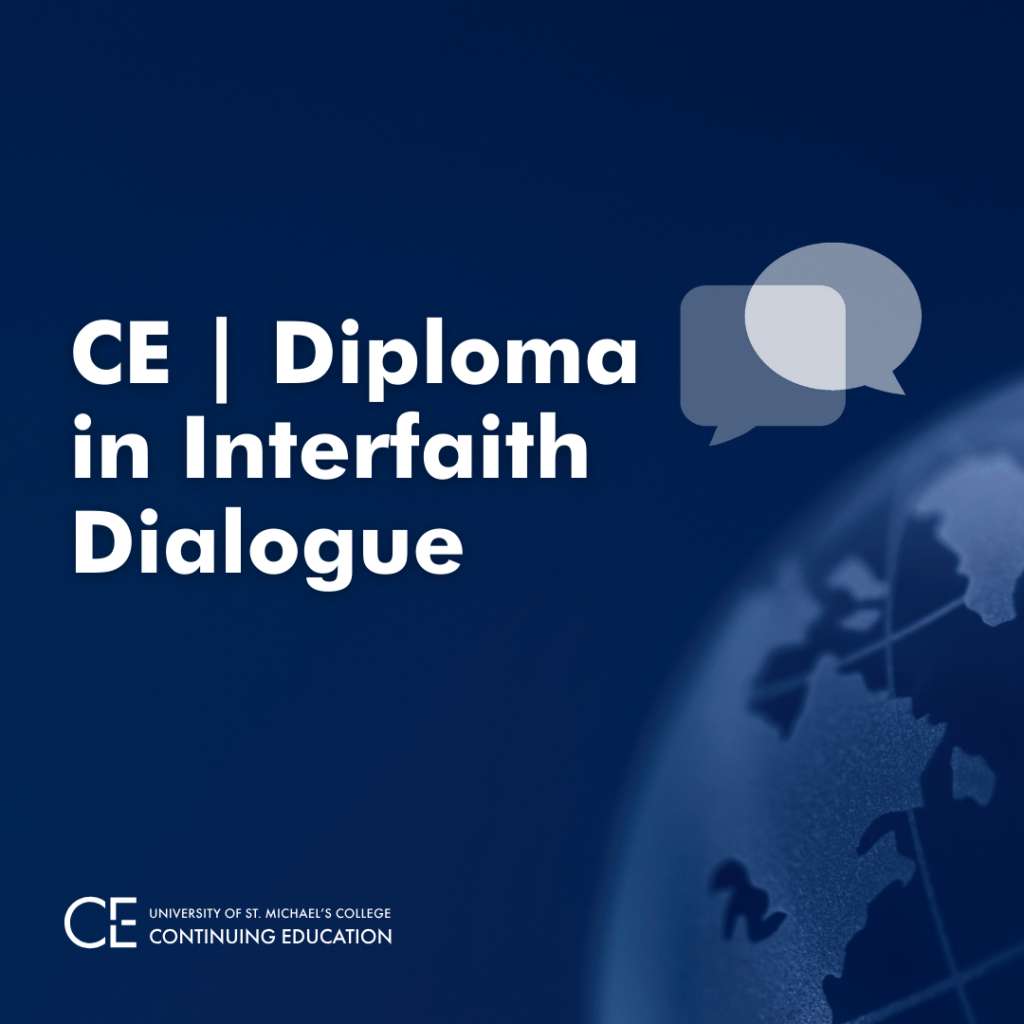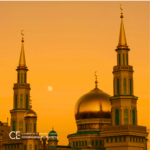Explore World Religions and Cultivate Global Understanding
The Diploma in Interfaith Dialogue is designed to introduce students to the spirituality of many different religions and faith communities that are our neighbours, leading to meaningful dialogue and new points of connection with other people.

Diploma in Interfaith Dialogue Overview
What could be possible if we understood each other better?
The Diploma in Interfaith Dialogue aims to equip learners with tools to build meaningful connections across differences. Learners will explore the tenets, histories and traditions of major religions around the world alongside strategies for respectful and effective communication that encourages understanding.
This fully online program consists of 8 4-week courses taught by faith leaders. Throughout the program, learners will develop an introductory understanding of other faiths and explore topics exploring the intersection of interfaith encounters within aspects of culture and history in a deeper way. Learners of all faiths will bring their own knowledge and perspective to interactive sessions, and a final reflection project will provide space for applying course concepts to learners’ unique contexts and communities.
Diploma Outcomes
By the end of the program, students will be able to:
- Understand and recount the historical origins, central teachings, devotional practices, and social/political influences of at least four major religions (informational and confessional aspects)
- Identify the major texts of at least four religions and explain how those texts are used in each religious practice (informational and confessional aspects)
- Articulate how more than one religion engages in religious topics such as peace and justice, prayer and mystical experience, etc. (relational and practical issues)
- Demonstrate the relationship between religion and culture through the arts and education (relational and practical issues)
- Engage in meaningful dialogue with men and women of other religions at either a personal or institutional level. This does not mean that every student will be members of dialogue teams; rather, through experiential learning, they will come to understand the nuances of interfaith dialogue that can occur at every level: personal, local groups, and the larger institutional (when available).
Admission Requirements
- Admission is open to people of all faith traditions.
- A prior degree is not required to apply.
Fees
Thanks to a generous donation from the Scarboro Foreign Mission, we are able to offer all courses at a significantly reduced rate of $150. We are grateful for their support in providing accessible learning for all.
Program Requirements
The diploma comprises 8 12-hour courses, each offered over 4 weeks. (4 weeks at 3 hours per week).
Each course is delivered online via Zoom. Learners will also access an online Learning Management System where they will access readings and lecture materials as well as participate in reflective discussions.
Courses
All learners are welcome to enroll in individual courses based on their interests. There is no obligation to complete the entire diploma program to participate in a course.
Learners who wish to receive the Diploma in Interfaith Dialogue must complete the following requirements:
- 2 mandatory introductory courses:
- A Catholic Approach to Ecumenical and Interreligious Relations
- Theories and Practices of Dialogue
- 2 courses from Category I (faith-based courses)
- 2 courses from Category II (topics in interfaith encounter)
- 2 additional courses from either category
- Learners who wish to receive the diploma will complete a capstone reflection course
Category I: Faith Communities of Toronto and the World
These courses focus on the informational and confessional aspects of acquiring knowledge of another faith tradition’s history and beliefs as that faith tradition defines itself.
- First Nations spiritualities
- Buddhism
- Christianity: an Ecumenical Approach
- Hinduism
- Islam
- Judaism
- Sikhism
- Religious architecture/Sacred Spaces (cross-listed in Category 2)
Category II: Topics in Interfaith Encounter
These courses focus on the relational and practical issues that emerge in interfaith encounters.
- Women and Religion
- Religion, Migration and World Geography
- Global Christianity/inculturation
- Peace and Justice
- Prayer and Mysticism
- Religious architecture/Sacred Spaces (cross-listed in Category 1)
- Education and World Religions
- Religious Texts
Diploma in Interfaith Dialogue: Fall 2024 Courses
SMD 102 – Dialogues: Principles and Practices
SMD 203 – Islam 101
Thank you for your interest in our SMCE Diploma in Interfaith Dialogue.
Unfortunately, the course you have selected is currently not open for enrolment. Please request a notification below so that we may promptly notify you when enrolment opens.




